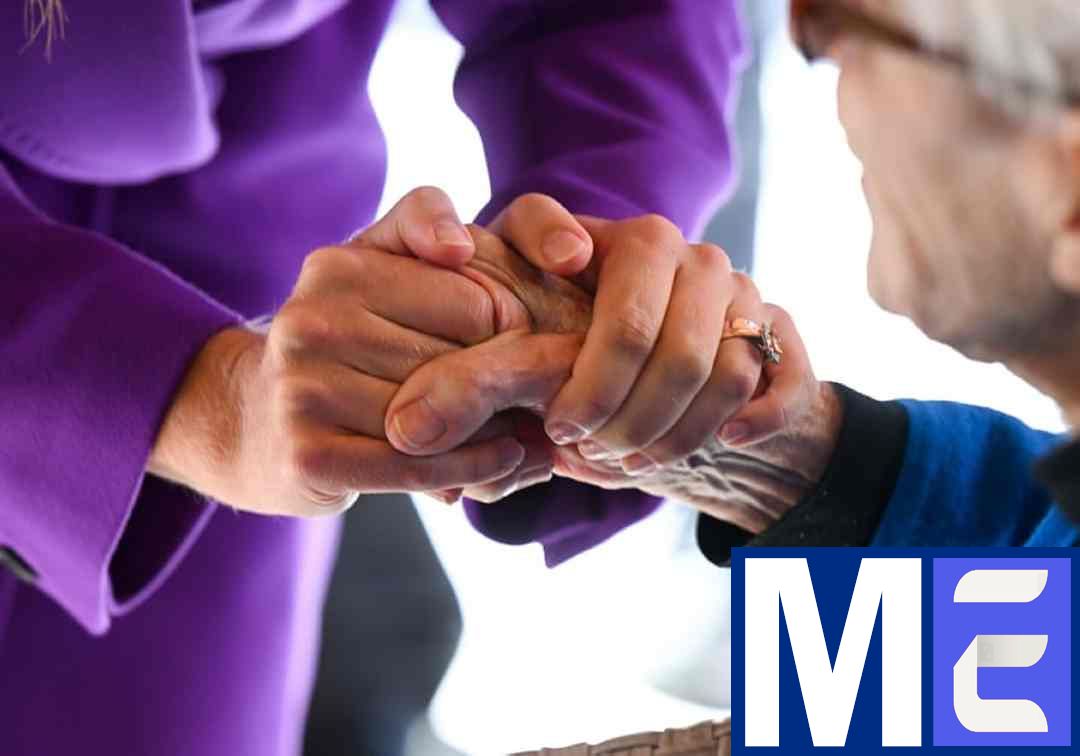Anxiousness and concern are phrases usually used interchangeably, however they don’t seem to be the identical.
Worry is likely one of the seven core feelings on the Change Triangle, the sensible device I exploit to show emotion training. The organic and evolutionary function of core feelings, like concern, is to assist us survive. Worry particularly makes us flee from hazard.
Anxiousness, an inhibitory emotion on the Change Triangle, outcomes from avoiding core feelings and desires. Extra particularly, anxiousness outcomes from the bodily effort to push down feelings. If we all know we aren’t in bodily hazard in a second, but we’re experiencing one thing akin to concern, we are able to assume we’re experiencing anxiousness.
Generally, the quantity of hysteria we expertise is linked to our early experiences with feelings. For instance, if a baby “learns” by expertise that their disappointment results in mom’s withdrawal or impatience, the kid will be taught to suppress disappointment. In outcome, the kid might really feel anxiousness as a substitute of disappointment.
It’s essential to grasp the distinction between concern and anxiousness as a result of the way in which we work by these two feelings is completely different.
What Is Worry?
If you really feel afraid, the 5 senses of seeing, listening to, tasting, smelling and contact translate data taking place in our speedy setting. For instance, after we see a vicious-looking animal working towards us, hear footsteps approaching from behind, odor smoke in our home, or really feel unexpectedly touched on the again, the limbic system, merely often called the emotional mind, switches on the concern response.
This occurs mechanically, which is why we will not management whether or not we’ve got feelings, solely how we react to them. Core concern causes many modifications within the physique just like that of hysteria. That’s as a result of concern’s “job” is to get the physique able to struggle or flee. Think about for a minute what occurs after we get startled. The mere shock of a horn, for instance, begins our coronary heart racing and our respiratory to get shallower and sooner. We would leap or flinch. All of the bodily modifications that concern causes promotes a fast response to hazard.
It’s price restating, since many people blame ourselves for having feelings, that concern and different core feelings are automated reactions that we can’t stop. Nature designed us this manner for a motive. Bypassing acutely aware management makes for speedier reactions. With out concern, we’d be simpler prey.
What Is Anxiousness?
Whereas anxiousness and concern really feel related, anxiousness is a response to our feelings versus hazard within the setting. Anxiousness is a stop-reaction to the impulses that concern and different core feelings create contained in the physique. For instance, concern mobilizes vitality for motion and anxiousness pushes it again down. Why would we be taught to push down our concern (or different core feelings)? Listed below are some causes:
- We have been instructed or proven that we have been dangerous or weak for being afraid.
- Our concern was undesirable or not permitted by others we would have liked.
- Our concern felt or feels overwhelming and unmanageable.
- We couldn’t escape hazard at one time.
- Now we have too many feelings at one time to course of or perceive them.
- Our concern conflicts with different feelings, beliefs, values and what others ask of us.
What makes anxiousness so complicated is that we are able to expertise it as a result of one thing upsetting within the current and we are able to expertise it from one thing up to now that continues to influences us. Psychotherapy may be useful in figuring out what occasions from the previous affect our anxiousness within the current.
What Does Worry and Anxiousness Really feel Like?
All feelings are bodily in nature. Consequently, we are able to sense them within the physique. If we decelerate and spot what occurs under the neck throughout concern or anxiousness, we’ll ultimately discover a wide range of bodily sensations and modifications.
The bodily manifestations of concern:
- Fast heartbeat
- Shortness of breath
- Sweating
- Trembling
- Chills
- Dry mouth
- Nausea
The bodily and psychological indicators and signs of hysteria:
- Feeling nervous, stressed, or tense
- Having a way of doom
- Elevated coronary heart charge
- Shortness of breath
- Sweating
- Dizziness
- Ear ringing
- Hassle concentrating
- Hassle sleeping
- Gastrointestinal (GI) misery
- Having problem controlling fear/ruminating
- Having the urge to keep away from issues that set off anxiousness
- Feeling insecure
You may need seen that concern and anxiousness evoke a number of related bodily experiences. That’s why they’re arduous to discern.
How Can I Course of Worry and Anxiousness?
Core feelings like concern relax when they’re absolutely and safely skilled within the physique — as soon as we not really feel threatened or at risk. Utilizing deep stomach respiratory plus a aware, curious and compassionate stance, we are able to comply with the sensations of concern within the physique, like trembling, till they launch or dissipate.
Anxiousness, then again, must be calmed not solely to really feel higher, however to assist get us in contact with the core feelings that underlie it.
When working by anxiousness, it may be useful to first discover a quiet place to decelerate, really feel our toes on the bottom, and take six or so deep stomach breaths. Not solely does this set the stage for processing feelings, but it surely instantly begins to calm anxiousness. Then, we should get very interested in what core feelings we would even be experiencing. I ask myself, “Is something scary or harmful taking place to me proper now?” If I’m going too quick in my automotive or boarding an airplane, I’d reply “sure” to this query.
If the reply is “no,” I can discern that I’m experiencing anxiousness. For instance, Steve will get hit with a jolt of what seems like concern each time his boss assigns a activity. We decided this was anxiousness and never concern. Why? As a result of doing duties are usually not harmful to survival. Nonetheless, as a bit boy, when Steve made a mistake, he was chastised and humiliated. As an grownup, Steve’s thoughts equates doing duties with the reminiscence of being shamed, which triggers anxiousness.
When working with anxiousness, I counsel going deeper to see for those who can establish a number of core feelings which are underlying the anxiousness. Ask your self, “Do I really feel indignant? Do I really feel disappointment? Do I really feel afraid? Do I really feel disgusted? Do I really feel excited? Do I really feel pleasure? Do I really feel sexually excited?”
Now we have energy to maneuver by anxiousness and concern to extend future well-being. We are able to work the Change Triangle and be taught methods akin to fantasy portrayals and staying with bodily sensations to assist course of concern and different core feelings. These methods can be utilized alone or with a help particular person or skilled counsellor who works with feelings within the physique.
Attempt by no means to guage the feelings you uncover inside. As an alternative respect them for the way they inform us of our humanity and remind us we’re alive.
Emotional well being is as essential as bodily well being. And, in reality, they’re inextricably linked. After we really feel anxious or scared, it’s time to grasp what is occurring so we are able to reply to our feelings in a means that nurtures each our short- and long-term emotional well being.
Hilary is writer of the worldwide award-winning e-book, It’s Not At all times Melancholy: Working the Change Triangle to Hearken to the Physique, Uncover Core Feelings, and Connect with Your Genuine Self (Random Home). She acquired her BA in biochemistry from Wesleyan College and an MSW from Fordham College. She is a licensed psychoanalyst and AEDP psychotherapist and supervisor. She has printed articles in The New York Occasions, Time, NBC Suppose, FOX Information, Oprah and her weblog is learn worldwide.
For extra data and free sources for psychological well being, go to:
https://www.hilaryjacobshendel.com/
Fb.com/AuthorHilaryJacobsHendel
Twitter: @HilaryJHendel
Instagram: Hilaryjacobshendel
YouTube: the Change Triangle



